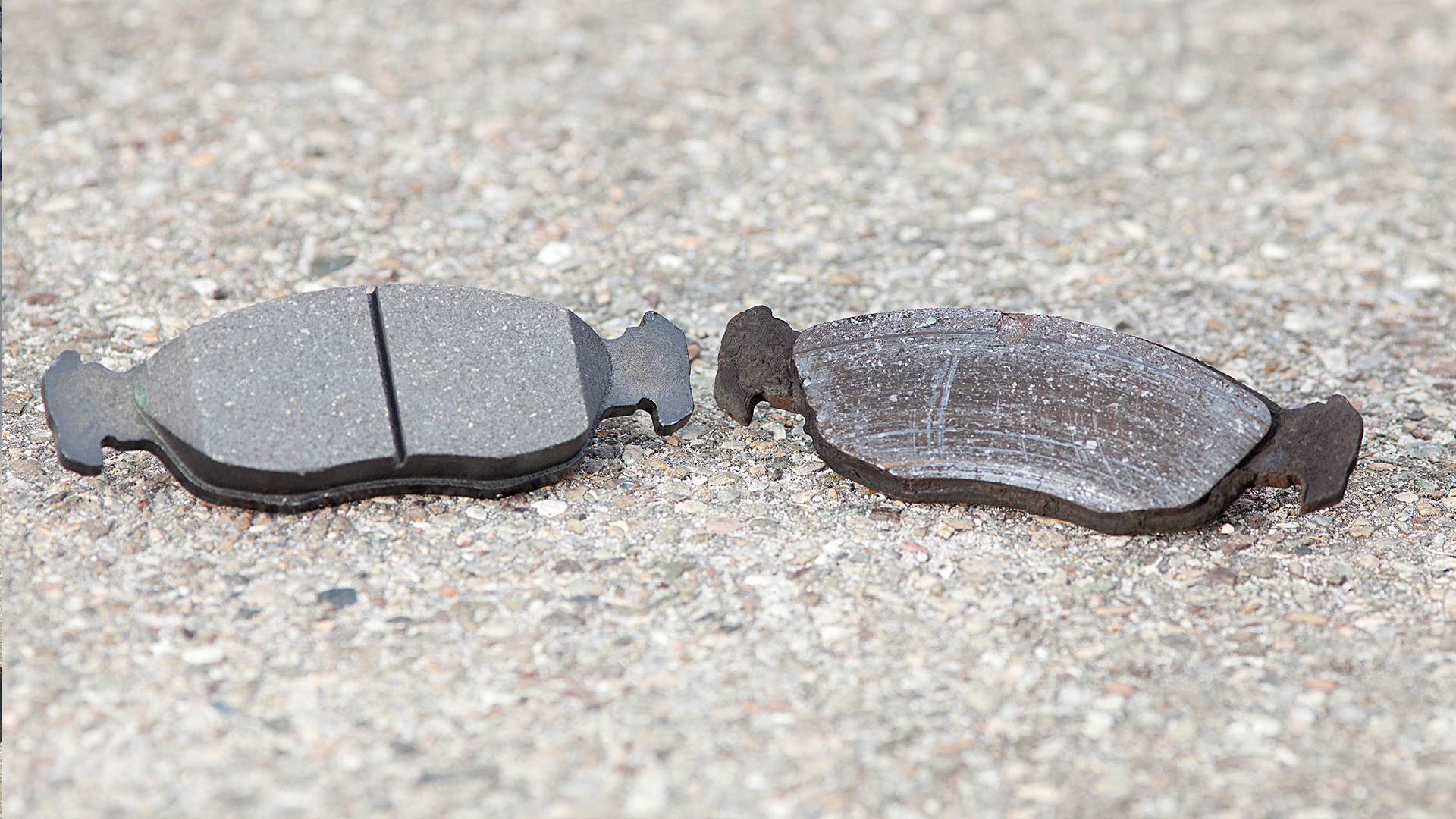Need help with your Brake Booster Replacement?
Our mobile mechanics bring the shop to you 7 days a week.

Find Your Cost
Why AutoNation Mobile Service?
We perform over 600 repair and maintenance services including oil changes, brakes, diagnostics, belts and hoses, and more. The best part? We come to you with all the necessary tools and parts.
 Upfront Pricing
Upfront Pricing
 Online Booking
Online Booking
 Quality Service
Quality Service
 Full Warranty
Full Warranty
Signs You Need a Brake Booster Replacement
Brake boosters provide power assistance to the brake master cylinder during braking. Bad brake boosters can cause engine vacuum problems and result in a costly braking system repair. So, it’s best to look out for any faulty brake booster symptoms.
Here’s what they are:
1. Brake Pedal Issues
Faulty brake boosters can affect your brake pedal in several ways. For example, it can cause a stiff brake pedal and increase your stopping distance. This is typically caused by a failing vacuum pump (for vacuum brake booster) or a bad hydraulic pressure pump (for hydraulic booster.)
You may also notice that your brake pedal is positioned higher than usual. As a result, you may have to lift your foot higher to press the brake pedal, apply more force, or press it more often to stop the vehicle.
2. Fluid Leaks
If your brake fluid levels remain low, even after refilling them, you should look for internal leaks in the engine compartment.
One way to do that is by inserting a clean engine dipstick inside the booster vacuum check valve. If the dipstick has any liquid residue, your car probably has a brake fluid leak.
Occasionally, you may notice other signs, including a triggered check engine light or a puddle of fluid under the car.
3. Engine Noise and Stalling
A bad brake booster can result in stalling and reduced engine performance. If your brake system is vacuum operated, you may even notice hissing sounds when you depress the power brakes. This sound is caused by a vacuum leak within the vacuum booster. A vacuum leak can also cause other problems, like a cracked engine vacuum line, leading to a costly repair.
4. Activated Warning Lights
Different warning lights, like the brake light, can light up on your dashboard if you have a faulty brake booster.
For example, on some vehicles, the Anti-lock Braking System (ABS) light may activate to indicate a faulty brake booster. Apart from the ABS light, your Check Engine Light may also show up on the dashboard.
How to Replace a Brake Booster?
Here’s how your mechanic will replace and install a new brake booster:
1. First, they’ll diagnose the brake booster problem based on your vehicle’s braking system and inspect the check valve.
2. They’ll take out the master cylinder by removing the mounting nuts and disconnecting the hydraulic brake line. Sometimes, they may need to remove the car battery and the battery tray.
3. Next, they’ll remove the brake booster vacuum hose.
4. The mechanic will disconnect the brake light switch and the booster pushrod from the brake pedal and remove the faulty brake booster.
5. Finally, they’ll replace the old one with a new brake booster and reattach the other components, like the booster rod, vacuum pump, and vacuum line.
How Much Does a Brake Booster Replacement Cost?
The average cost of power brake booster replacement depends on the make and model of your vehicle. In total, getting a new brake booster can cost around $325-$1250.
You can expect to pay $100-$900 for a new brake booster and $100-$200 for labor costs.
Note: Other auto repair services and replacement parts may be needed on top of the brake booster replacement, which can add to the final cost.
How Urgent Is a Brake Booster Replacement?
A faulty brake booster is dangerous and needs immediate attention.
Brake booster failure may lead to a loss of brake system efficiency. You’ll likely have to apply more braking pressure on the brake pedals or even have difficulty stopping the car.
In older cars, brake booster failure may cause the engine to run with insufficient vacuum pressure and fuel. This can also affect other components of the brake system, like the brake pad, pedal, push rod, rotors, and even the tires.
So it’s best to get your brake service done ASAP.
3 Brake Booster Replacement FAQs
Here are some common questions related to a brake booster replacement to help you understand this topic better.
1. What Is a Brake Booster?
A brake booster is a device that amplifies the force applied to the brake pedal and transfers that force to the brake master cylinder.
Here’s how it works:
- When you press the brake pedal, a valve creates atmospheric pressure inside the vacuum boosters. The applied braking pressure is amplified as it goes through the brake booster and towards the master cylinder.
- The master cylinder converts the force to hydraulic pressure, and the hydraulic fluid carries it through the brake line.
- The hydraulic pressure then passes through the brake caliper and reaches the brake pad. In the brake pad, it generates friction and stops the wheels.
2. Can I Drive With a Broken Brake Booster?
You can, but you really shouldn’t.
If the brake boosters aren’t working well, you’ll experience a stiff brake pedal, causing you to press harder on the brake pedals to slow down the car.
However, if you notice a bad brake booster due to a brake fluid leak, it’s best not to drive at all and immediately get it fixed. That’s because a fluid leak could lead to stiff pedals and, ultimately, brake failure.
3. How to Test a Brake Booster?
Testing the vacuum brake booster is a fairly simple procedure. However, if you’re not comfortable with car parts, it’s best to let a mechanic do the job for you.
Here’s how a mechanic will test it:
- First, they’ll turn off the engine and open the engine compartment.
- Next, the mechanic will pump the brake pedal several times to ensure that there’s no vacuum in the power brake booster.
- Then, they’ll press down on the brake pedal and simultaneously start the engine.
- If the brake pedal works, they should feel slight resistance in the pedal as the engine compartment supplies pressure to the booster.
- Now, the mechanic will keep the engine running and pump the brake again. They’ll repeat the process until the braking pressure becomes more firm, indicating that the brake booster isn’t leaking.
- Finally, they’ll inspect the booster check valve to verify the vacuum pressure in the power brake booster and disconnect the vacuum hose. If it works, air shouldn’t flow when vacuum pressure is applied. If it does, the mechanic will replace your vacuum booster.
Related Repairs
Not sure? Let us diagnose
Other Repairs
We're here to keep you moving
Our experienced mobile mechanics are ready to help.
Get a Quote12-Month | 12,000-Mile Warranty


